The Marin Rift Zone XR 27.5 is claimed to be Marin’s most fun trail bike. It sports 130mm of travel out back, with 140mm up front.
Wide, aggressively treaded tyres and burly forks suggest that despite moderate travel numbers, this is a bike built to go hard.
Marin’s recently released alloy Rift Zone family spans both 29in and 27.5in-wheel bikes, as well as a number of models aimed at younger riders, with smaller 26in and 24in wheels.
The alloy Rift Zone frames saw some fine tuning in 2023, with new geometry, updated kinematics and refined finishing touches to make living with the bike a better experience.
This XR version sits at the top of the Rift Zone alloy tree, though there are carbon models available too. My fellow senior technical editor, Alex Evans, has reviewed the Marin Rift Zone XR 29, so if you’re undecided on which wheel size to pick, have a read of his review too.
Marin Rift Zone XR 27.5 frame and suspension
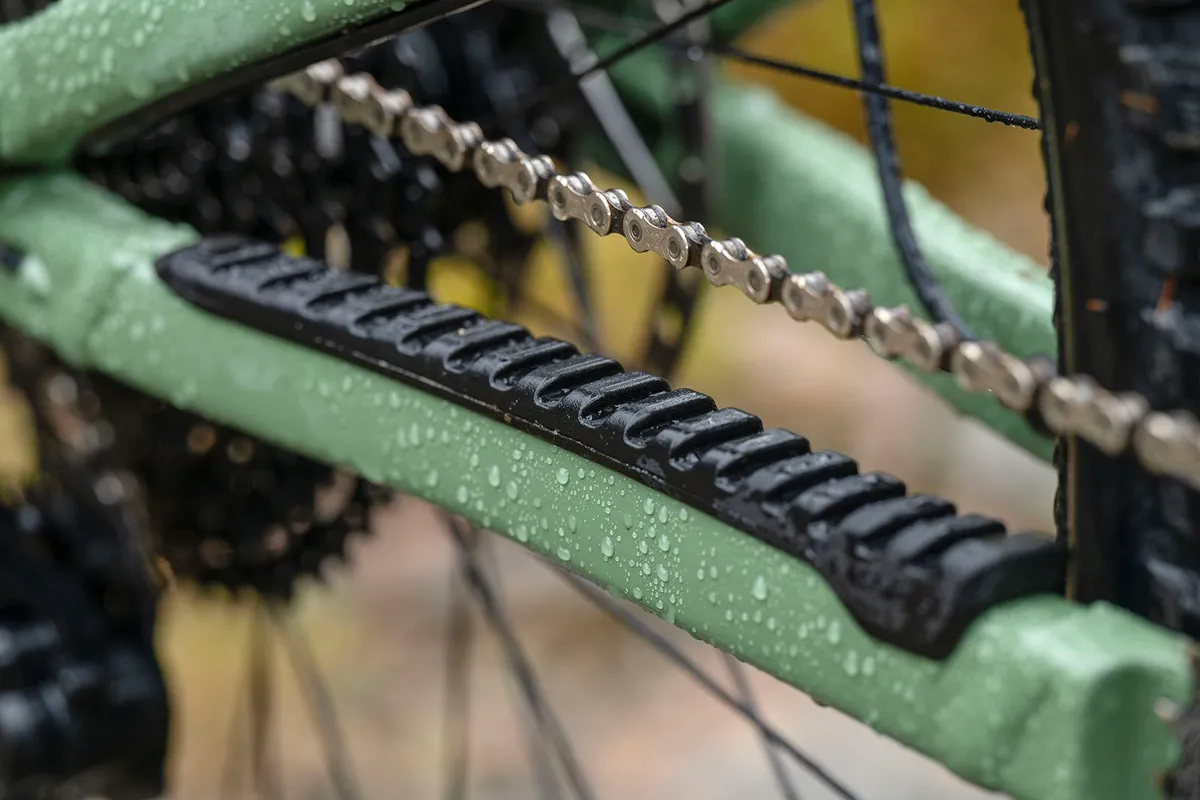
Marin has used its Series 3 6061 aluminium for the frame, with the tubes manipulated to give a flare at the head tube, increasing weld area, and small braces at some of the frame junctions to bolster strength. Tubes are butted to help save weight, too.
The top tube is slung low, joining the seat tube relatively low and improving standover height. The seat tube is kinked slightly above the bottom bracket to help get the main pivot in Marin’s desired position. The yoke at the front of the chainstays has a cutaway to sit nicely around the BB shell.
Cables run internally, though at tube junctions they reappear, and are routed smartly through yokes or past pivots. I particularly like the rear derailleur cable and brake hose’s main-pivot located cable guides, and the smoothed-out tube entrances, giving the bike a slick look.
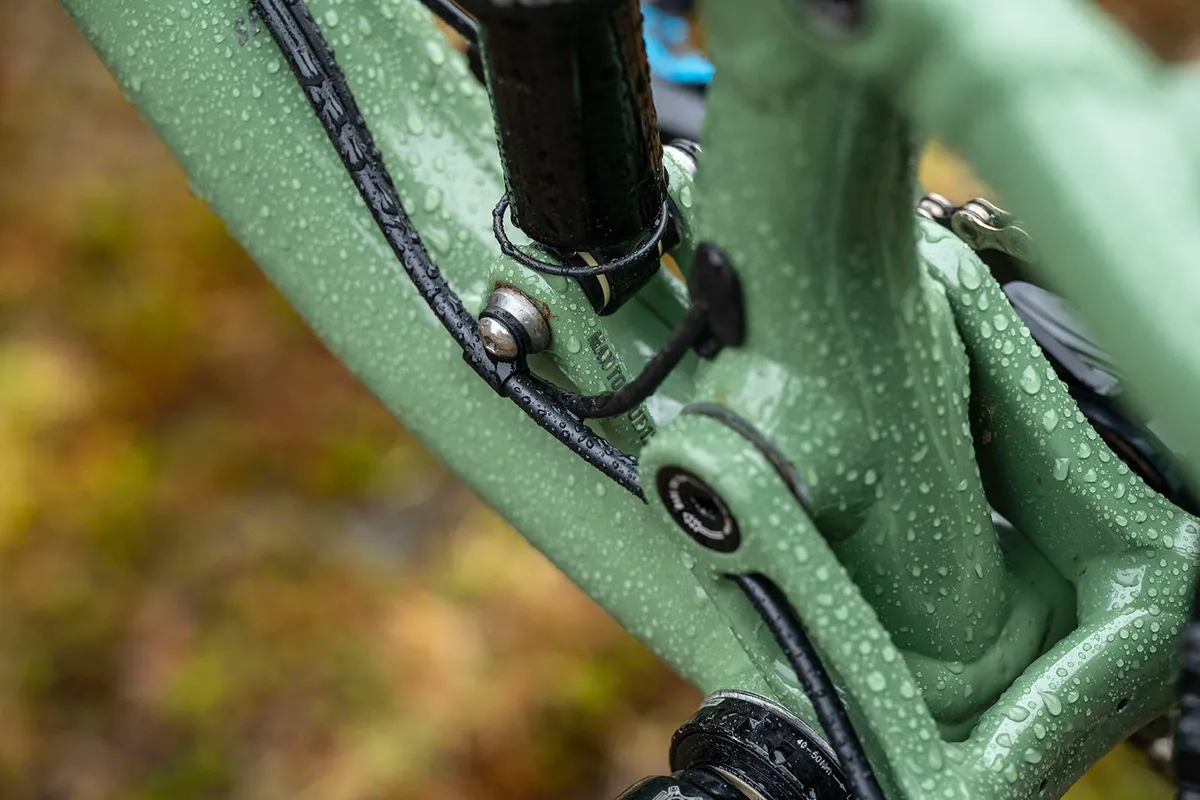
Situating it here should minimise cable rub and movement during the suspension’s compression. They’re then ported through a hole in the chainstay yoke – a tidy system.
As you’d expect on such a bike, there's frame protection on both the chainstays and seatstays, while SRAM’s Universal Derailleur Hanger makes upgrading to a SRAM T-Type drivetrain possible down the line.
Marin uses a linkage actuated single-pivot suspension design on the Rift Zone.
This gives the bike 130mm of travel, with a rocker linkage compressing a vertically mounted shock.
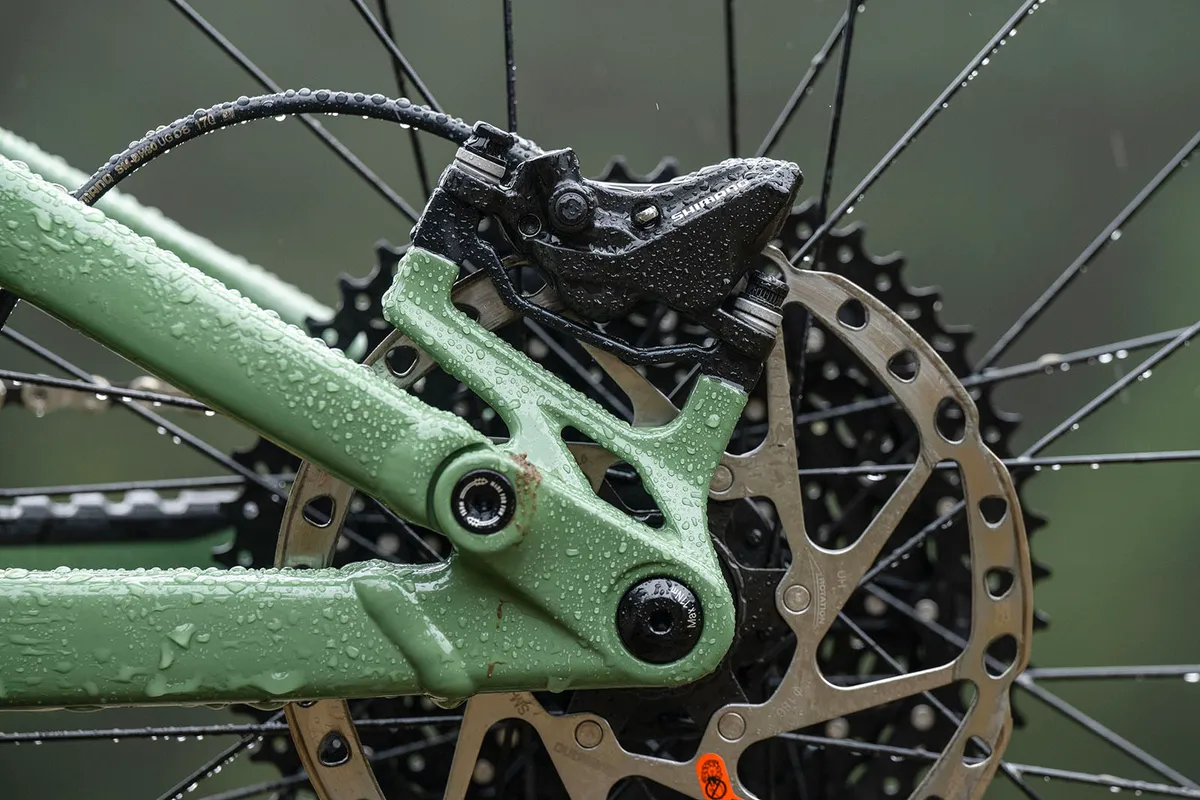
The system has been designed to be relatively progressive, with Marin designing the kinematics around longer-stroke air shocks.
This, Marin says, gives the bike good small-bump sensitivity, as well as a long-travel feeling thanks to the progression later on in the suspension’s movement.
Pedalling characteristics are said to be efficient, while braking forces should have little impact on the suspension’s freedom of movement.
Marin Rift Zone XR 27.5 geometry
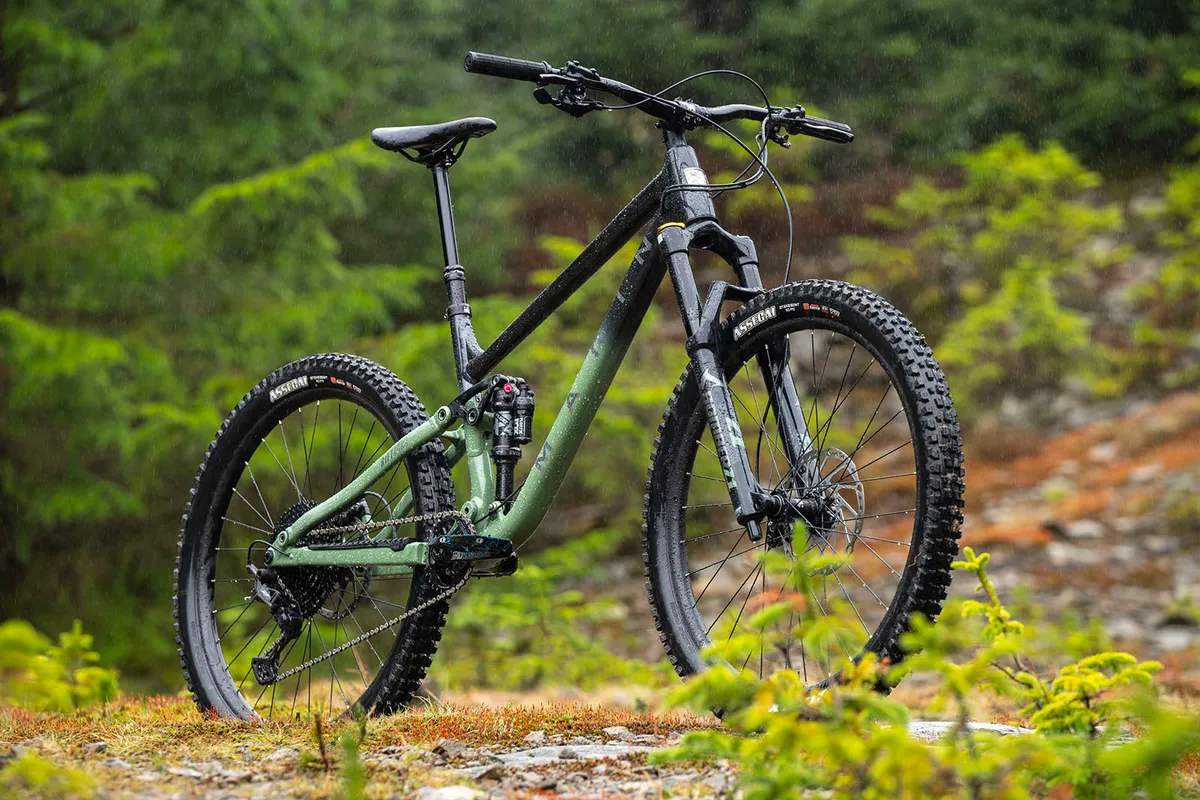
Marin has designed the Rift Zone to be playful. In terms of geometry, this means a low bottom bracket, a long front end, and short rear.
Four sizes are available, with reach figures ranging from 430mm to 500mm, and seat tube lengths from 390mm to 430mm.
I measured the head angle on this 27.5in-wheeled bike at 65.6 degrees, while the seat angle is steep at 79 degrees for my 750mm saddle height. The reach on my size-large bike is 470mm.
The bottom bracket height is 339mm, which is 20mm below the axles on this bike.
| | S | M | L | XL |
|---|---|---|---|---|
| Seat angle (degrees) | 77 | 77 | 77 | 77 |
| Head angle (degrees) | 65.5 | 65.5 | 65.5 | 65.5 |
| Chainstay (mm) | 430 | 430 | 430 | 430 |
| Seat tube (mm) | 390 | 400 | 425 | 430 |
| Top tube (mm) | 568.7 | 589.7 | 610.8 | 641.8 |
| Head tube (mm) | 120 | 125 | 130 | 135 |
| Fork offset (mm) | 37 | 37 | 37 | 37 |
| Bottom bracket drop (mm) | 20 | 20 | 20 | 20 |
| Bottom bracket height (mm) | 339 | 339 | 339 | 339 |
| Wheelbase (mm) | 1,164.8 | 1,186.9 | 1,208.9 | 1,241 |
| Standover (mm) | 677.8 | 687.8 | 682.3 | 687.8 |
| Stack (mm) | 600.7 | 605.2 | 609.8 | 614.3 |
| Reach (mm) | 430 | 450 | 470 | 500 |
Marin Rift Zone XR 27.5 specifications
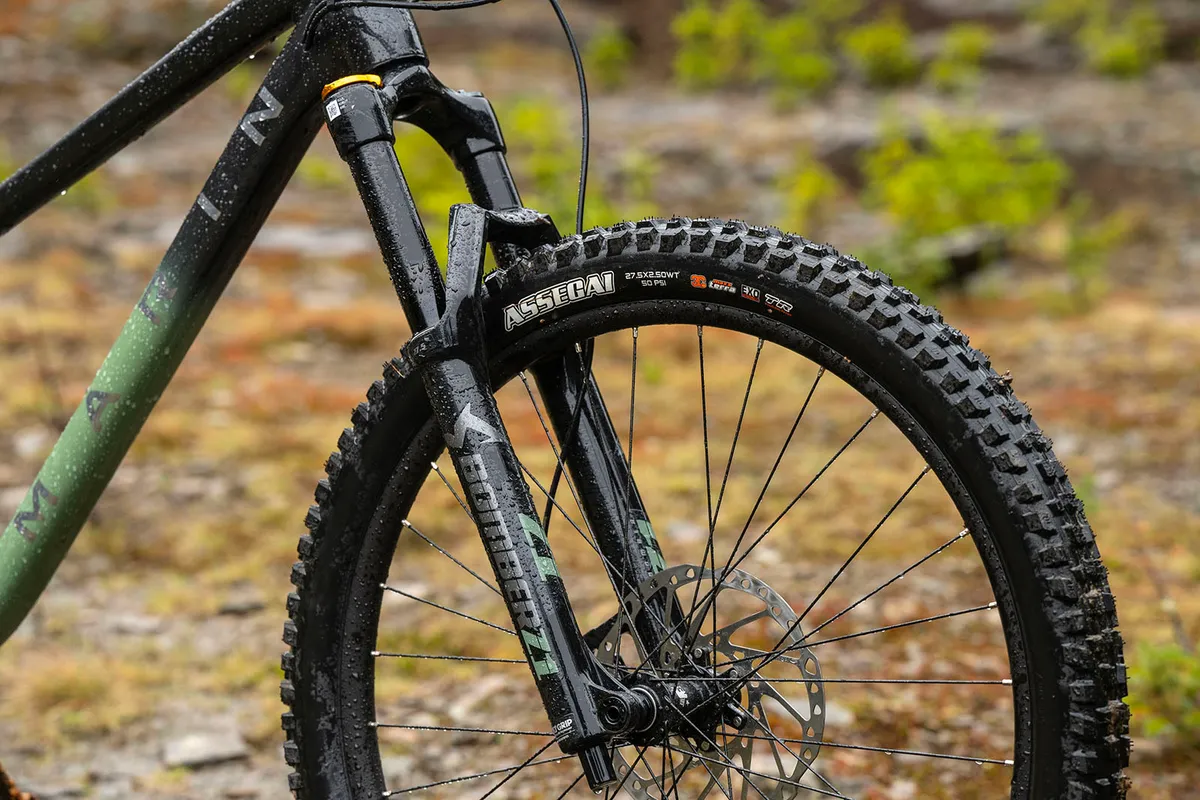
The Rift Zone XR is the cheapest bike in this year's Trail Bike of the Year test, and while the lower price plays through in some components being more budget-focused, what’s clear is Marin’s product managers have a real eye for maximising performance, within some boundaries.
This is most noticeable with the bike’s suspension.
At the front, there’s a Marzocchi Bomber Z1 with 140mm of travel. This is a really burly fork, based largely on the well-regarded Fox 36 (Fox bought Marzocchi a few years back and the brands share some of their tech).
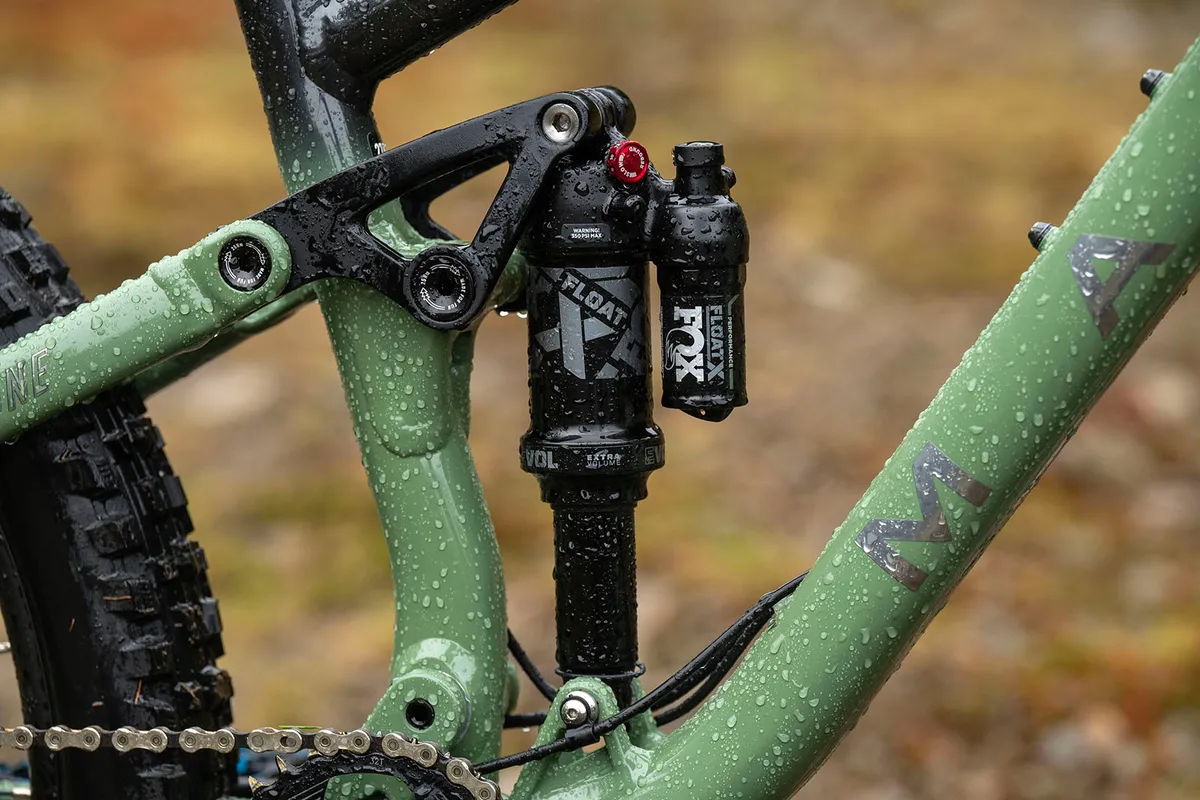
The chassis is very similar to the base-level Fox Performance 36, though slightly cheaper materials are used. The Rail damper is based on the GRIP damper from Fox, and again, is well regarded.
Further back is the excellent Fox Float X Performance Series shock. The shock has a piggyback design, whereby there’s an additional chamber of oil exterior to the main air chamber. This higher volume of oil is more resistant to heat build-up on long descents.
The Performance-level shock might not get all the adjustment the Performance Elite gets, but it still has rebound adjustment and a Climb Switch, to aid suspension stability when powering uphill.
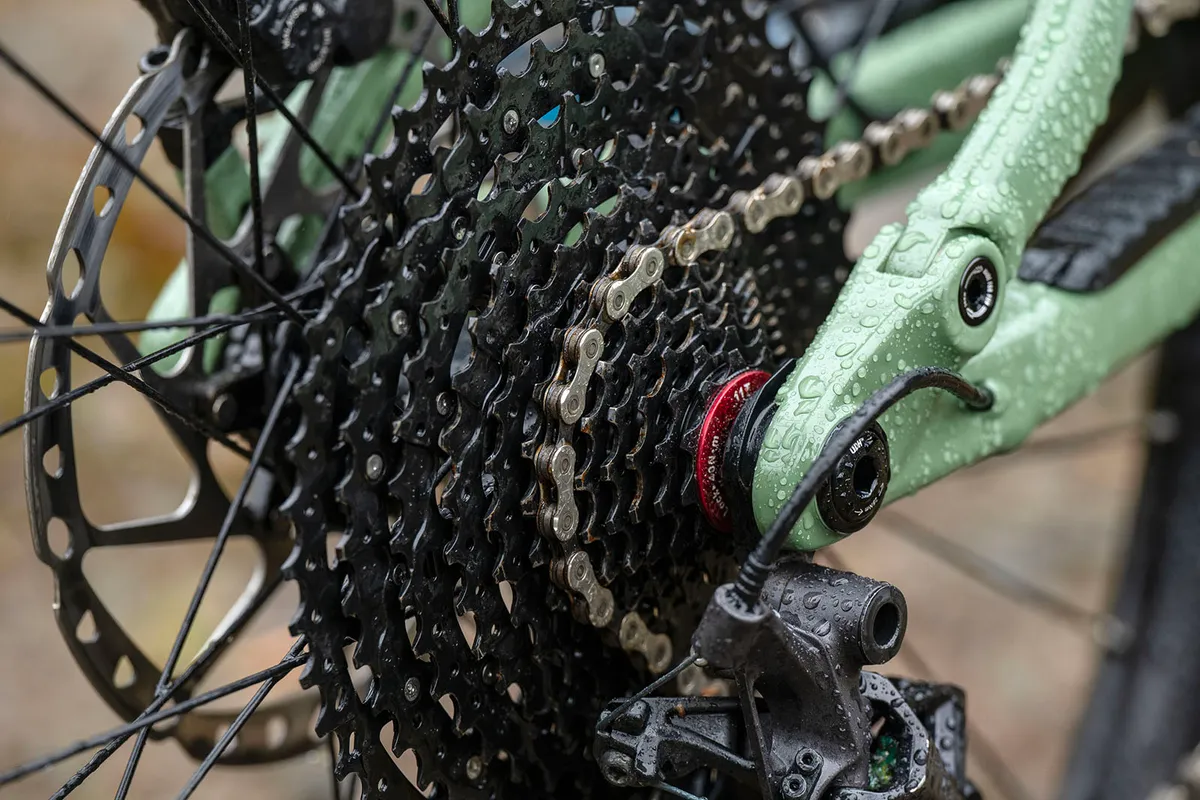
Elsewhere, there’s a mixed drivetrain – an FSA Grid crank with 32t ring, Shimano Deore shifter, Shimano XT derailleur and a SunRace cassette with an 11-51t range.
I’d probably prefer a Shimano XT shifter and Deore derailleur, from a performance point of view.
Shimano provides its four-piston, non-series MT420 brakes. They have the longer (cheaper) lever blade, which doesn’t get the ServoWave system (which offers better modulation), but I was impressed to see I-Spec shifter and dropper lever integration.
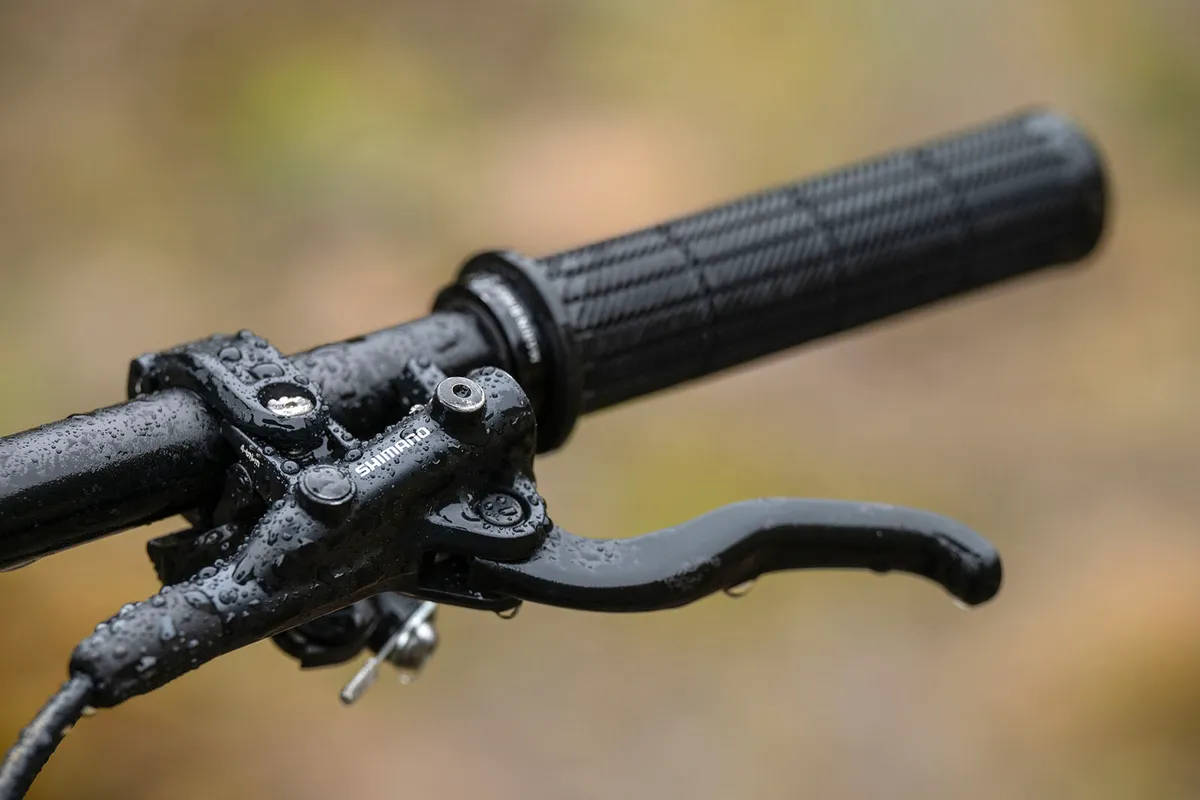
Marin’s own aluminium rims have a 29mm internal width, and are shod in Maxxis tyres – both 2.5in-wide Assegai tyres, in the MaxxTerra compound and thinner EXO casing.
The TransX dropper ranges in drop from 125mm to 175mm, depending on bike size.
Given the burly suspension, aluminium frame and relatively low price, the 15.3kg weight feels acceptable.
Marin Rift Zone XR 27.5 ride impressions
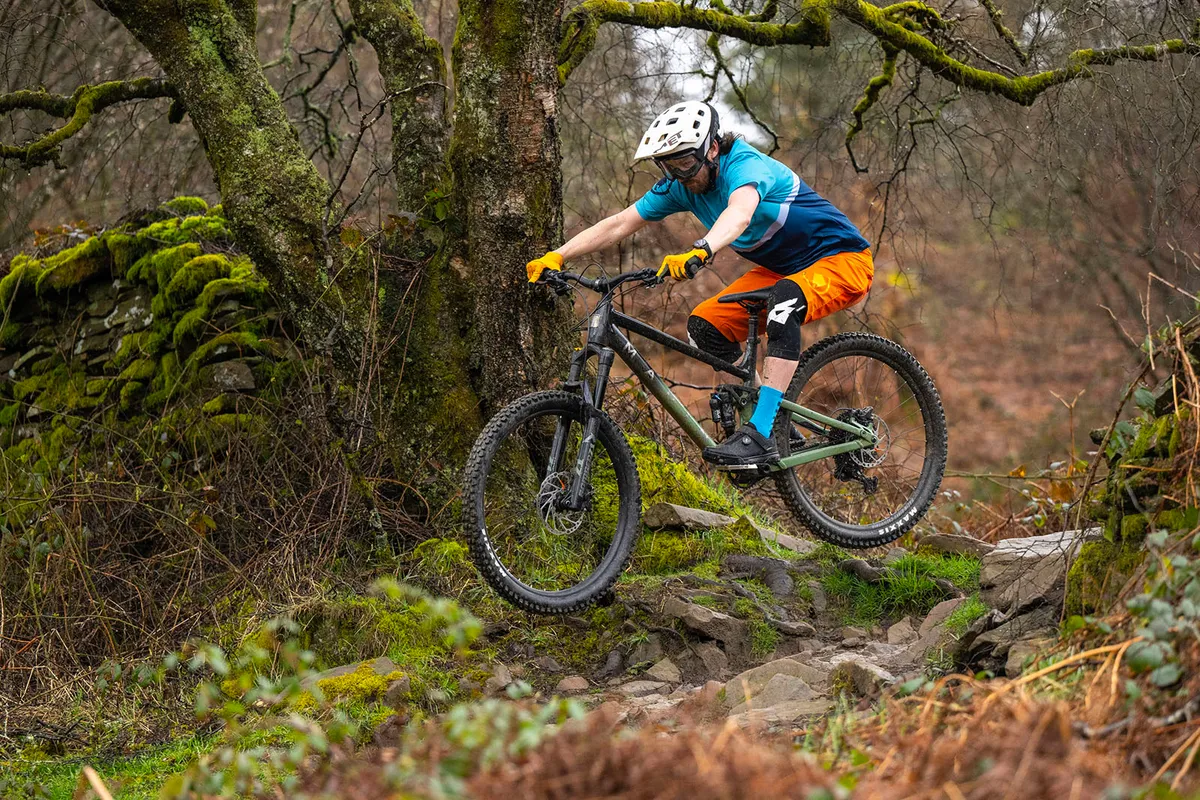
This bike was tested as part of our 2023 Bike of the Year test. It was compared to seven other leading trail bikes, listed below.
During testing, I took all the bikes to the same locations and trails for some dedicated back-to-back testing on a wide variety of terrain. From hand-dug cheeky tracks in the woods to trail centre laps and BikePark Wales’ rocky runs, I ensured the bikes were exposed to every type of trail such a bike is likely to be ridden on.
Riding the bikes back to back, usually with four in each testing session, ensured I was able to pick out the finer performance points of each one.
Marin Rift Zone XR 27.5 climbing performance
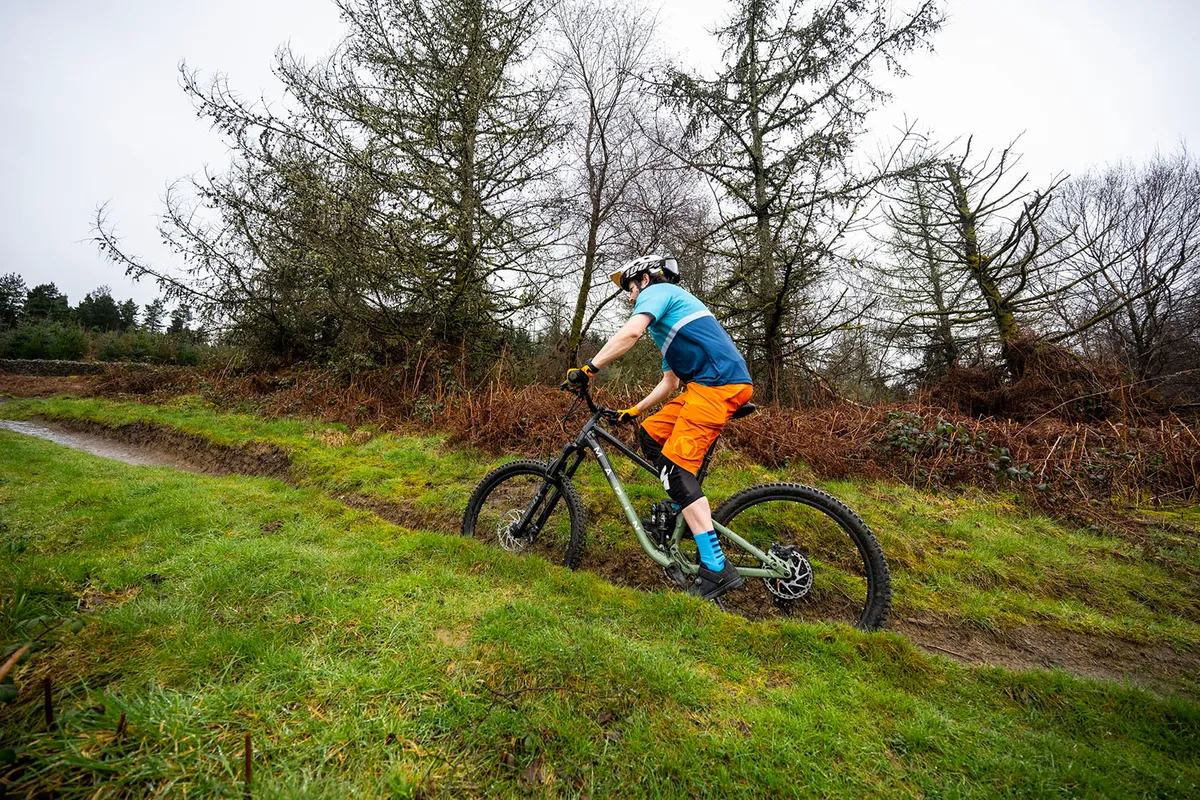
With a steep 79-degree seat angle and a top tube that’s 611mm long, the Rift Zone doesn’t feel like a particularly large ‘Large’ bike when you’re sat in the saddle.
With its low 610mm stack height, I raised the bars for descending performance, again making the bike feel a touch smaller than the headline reach figure might suggest.
This, in itself, didn’t seem to pose a problem for the bike, other than the bars rotating relatively close to my knees on tight corners on steeper climbs.
It helps give you a fairly upright, relaxed position on the bike, which suits a 'sit up and spin' attitude to climbing.
With this method, the Rift Zone climbs fine. There’s a bit of pedal bob, unless you pedal really smoothly. When stood on the pedals, I reached for the shock’s lockout switch sooner on the Marin than I did on other trail bikes, because it bobs more than most.
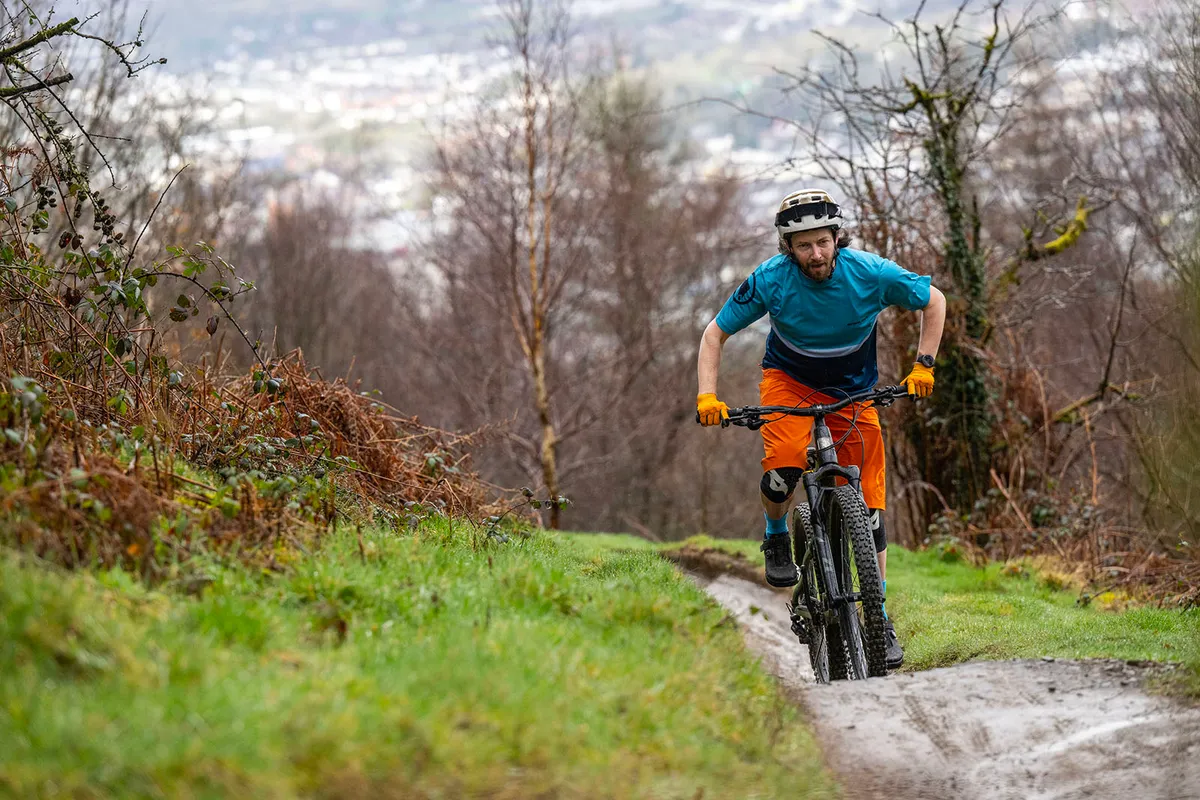
When tracks get technical, the forgiving rear end helps the Assegai dig in and grip.
I achieved more rear-wheel traction on marginal surfaces than I would usually expect from a tyre that’s great on dry, rocky terrain, but I find struggles in typical UK winter situations.
The SunRace cassette has a good range, only missing out on the hardest 10t ratio when compared to a Shimano 12-speed cassette. At the lower end, it matches the 51t of a Shimano cassette. Shifting across this block isn’t quite as smooth, though.
Marin Rift Zone XR 27.5 descending performance

As the only 27.5in bike in this year’s Trail Bike of the Year test, it’s no surprise the bike felt markedly different from the others in its category.
While some may argue the difference in wheel size is only a couple of inches, it makes all the difference.
On long, fast corners over slightly choppier terrain, I noticed myself making more micro-adjustments to the front wheel’s path than with the bigger hoops. It’s a touch less stable, and needs a little more rider input.
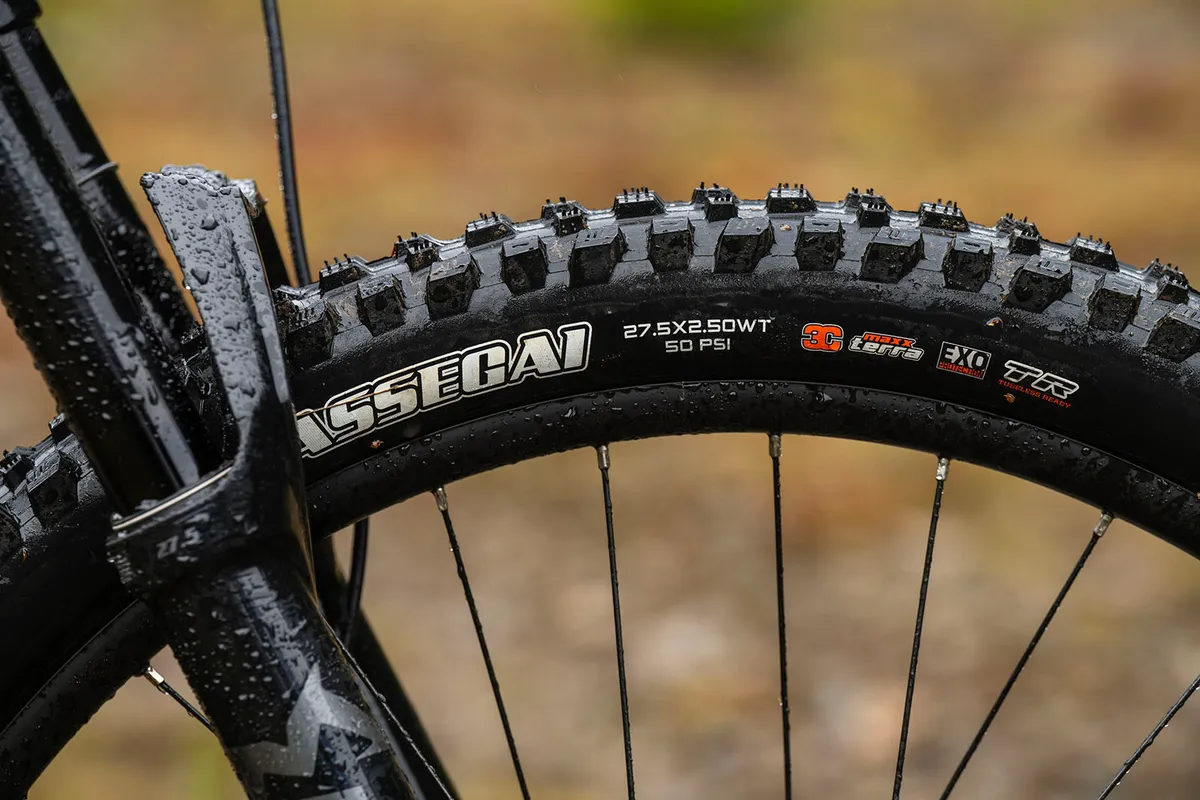
It’s also noticeable when rattling over rocky and rooty trails. The lower diameter catches on more edges, meaning speed is harder to hold and the ride is more staccato than a 29er would be.
With the downsides out of the way, it’s time to explain the upsides of the smaller-wheeled handling.
There’s no doubt the quick reactions the wheels aid make the Rift Zone 27.5 a superb bike for navigating 'nadgery' tracks, if you’re a pick-a-line type of rider. It’s easy to thread a path through jumbled obstacles.
Of course, you can blast over the top of the terrain, but it might not be as smooth as a 29er would be.
On more mellow terrain, the smaller hoops also contribute towards the bike having a real lease of life. It’s an easy bike to pick up into the air, or slide round a corner.
Under braking, the suspension remains as active, helping keep the tyre connected and speeds controlled.
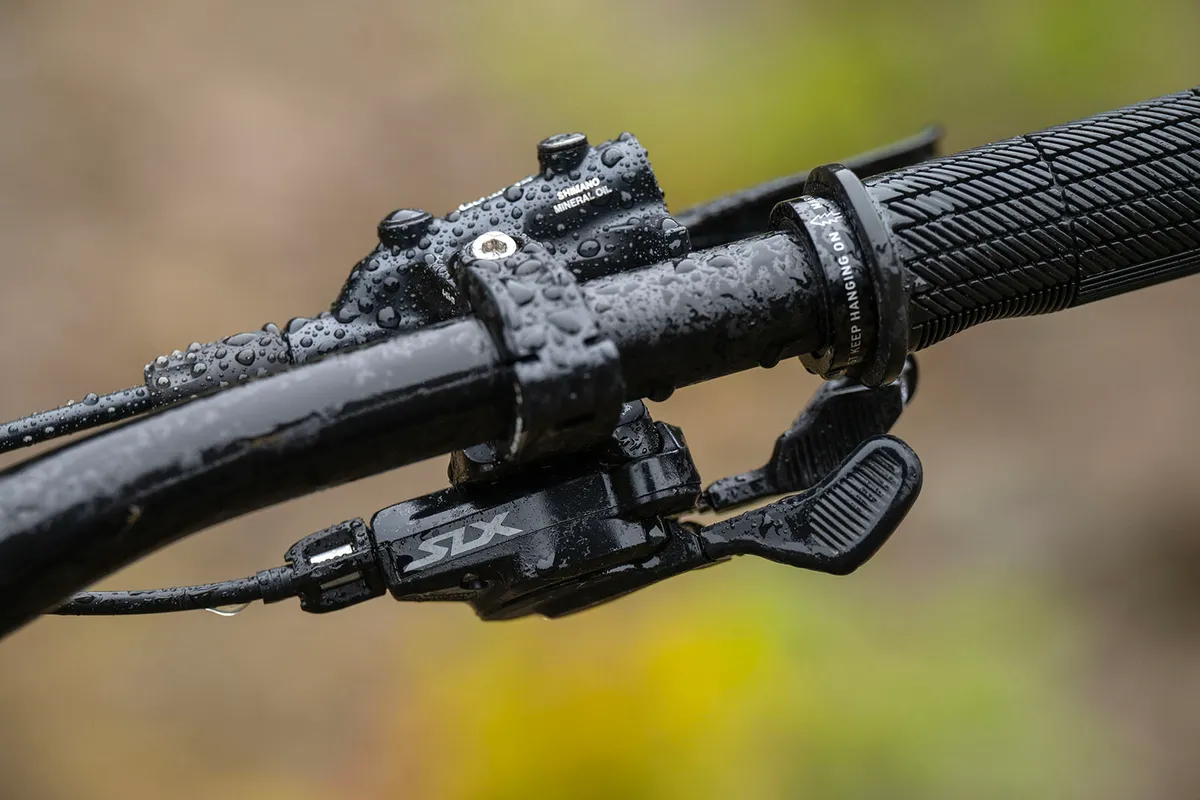
The brakes work fine, to a point. However, they’re probably the component that has the most impact on performance, because they’re not as digitally punchy as pricier Shimano stoppers.
They work better with a little more heat in them, but we found occasionally that by the time we’d done enough braking to generate that heat, we were edging towards arm fatigue. They’d be early on our list of potential upgrades.
Twisty woodland slopes felt like the bike’s natural playground, dropping a shoulder round a tree, or grabbing a fistful of rear brake to slap the tyre into the top edge of a berm.
It’s so easy to initiate a turn with the Rift Zone, making it a real hoot to ride.
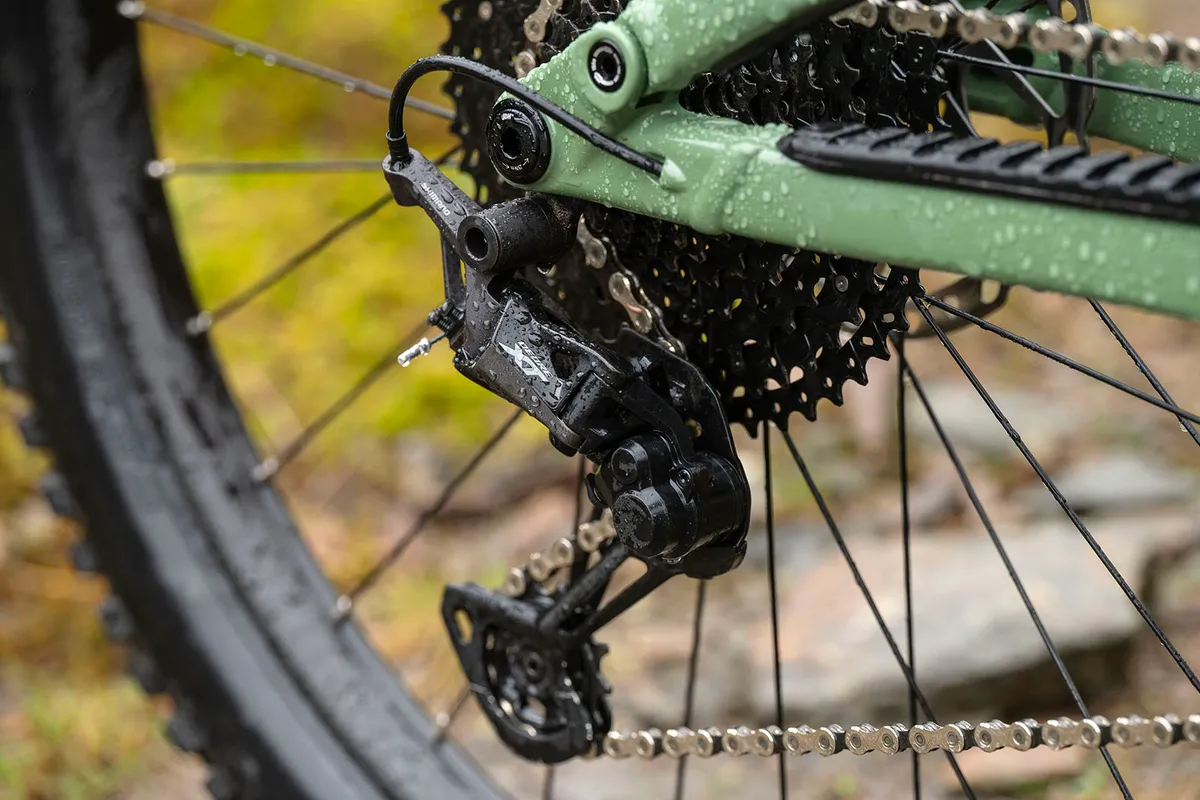
What’s clear, too, is Marin has paid close attention to where the bike’s relatively meagre budget is spent.
Yes, a full-family groupset might work more smoothly, and the Shimano brakes are basic in operation (but largely effective). However, the fork up front and the shock in the middle play a massive part in the overall performance of the bike – and they’re both great.
The Marzocchi Z1 is stout in stature and smooth in operation, helping the Assegai grip the dirt, and giving an air of authority to the front of the bike.
Further back, the Float-X is beautifully controlled and the backbone of what is a wonderful rear suspension system.
The Multitrac suspension linkage is controlled and composed, offering comfort and small-bump sensitivity, along with plenty of bottom-out resistance.
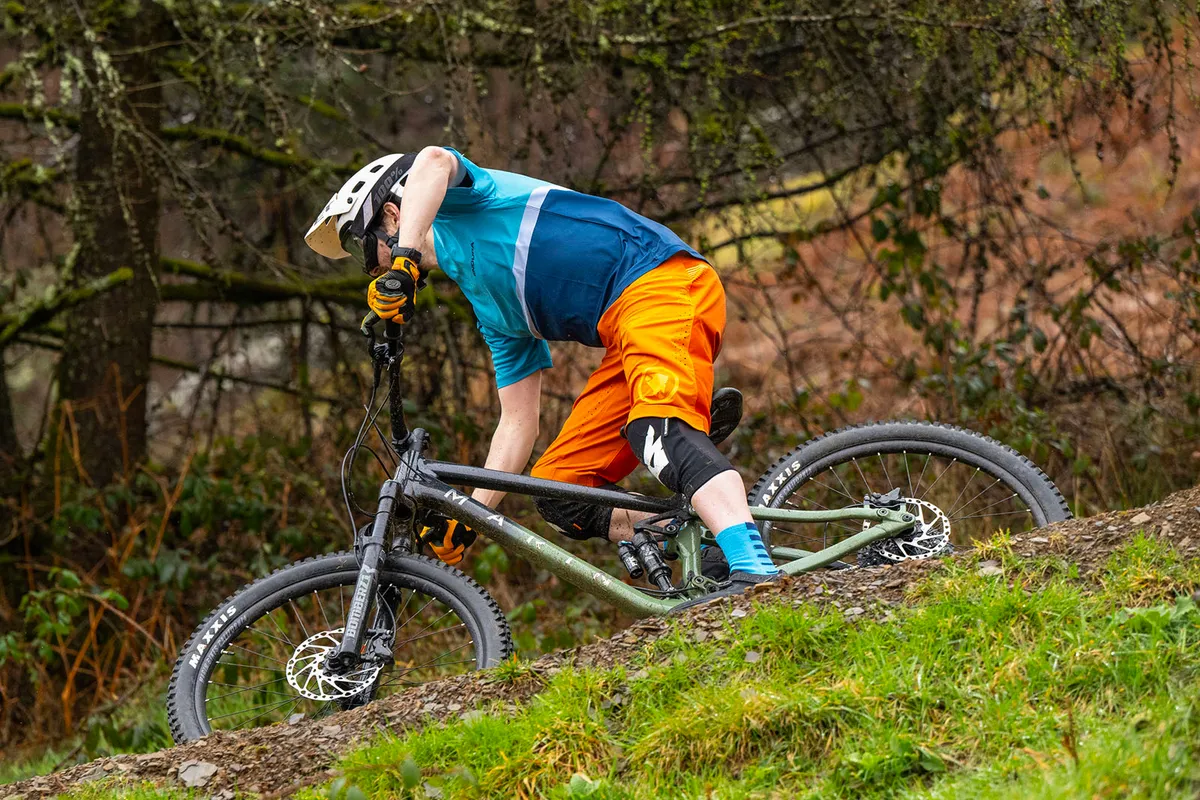
There’s mid-stroke support there, too, though not quite enough to quell enthusiastic pedalling efforts. Braking performance impressed, too. The overall impression is Marin has got the rear end of the bike just right.
Outside of the main components, the Marin finishing kit likely contributes towards the bargain price, and we’ve no issues there. The stem is stubby, the bars a nice shape, and the grips comfortable. I wouldn’t say no to a longer dropper, though.
The Assegai is a good tyre in the right conditions. This EXO casing, MaxxGrip version isn’t too heavy, and rolls okay, too. In my opinion, they clog in the mud more than some, and are a better summer than winter tyre.
The thin casing is relatively puncture-prone, too, but beefier tyres come at a cost.
How does the Marin Rift Zone XR 27.5 compare to the YT Jeffsy Core 3?
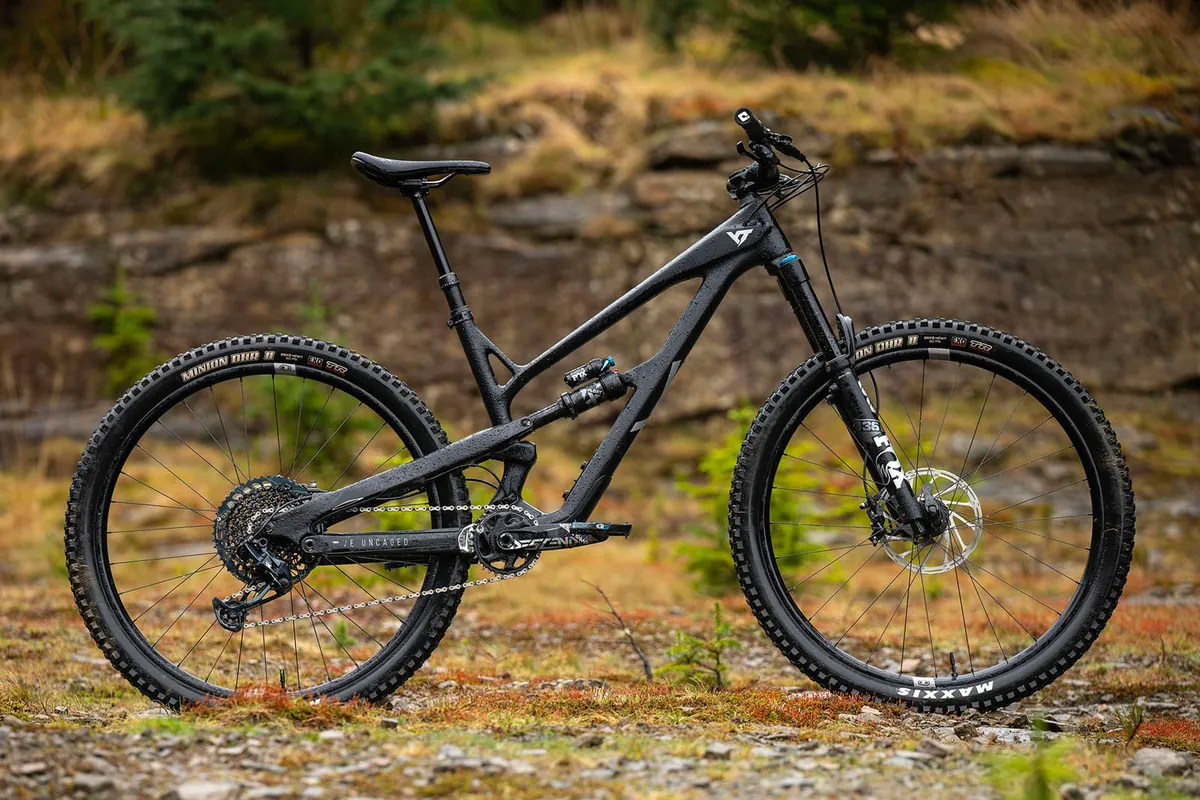
Both the Rift Zone and the Jeffsy display playful characteristics.
The Jeffsy is perhaps a touch poppier, with what feels like a bit more mid-stroke support to push against.
However, the Rift Zone is super-keen to twist and turn and also great fun to ride. Both have smooth, supple suspension.
Marin Rift Zone XR 27.5 bottom line
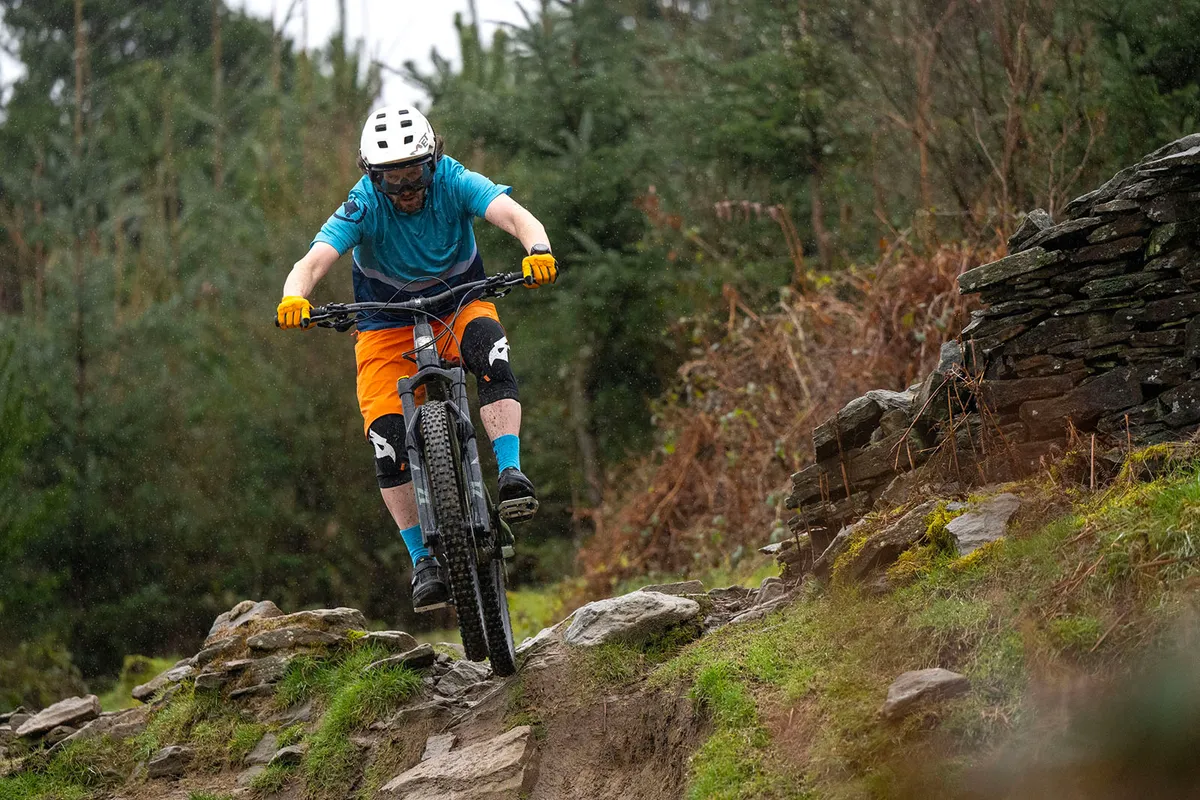
Marin has built a lovely looking and well-featured aluminium frame, with cracking rear suspension, while also prioritising front-end control.
It’s an engaging bike to ride, which benefits from quick-witted control inputs to get the most out of it. This isn’t a bike to hang off the back of – it needs rider attention.
It’s not as fast or smooth as a 29er, but it’s agile and whippy, and a whole ton of fun to ride.
Given how good the frame and suspension are, it would make a great base to upgrade from.
If you’re not convinced of the smaller wheels, the exact same bike can be bought with 29er hoops.
Trail Bike of the Year 2023 | How we tested
This bike was ridden as part of our 2023 Bike of the Year test. It was compared to seven of the best trail bikes.
I took all the bikes to the same locations and trails for some dedicated back-to-back testing on a wide variety of terrain.
From hand-dug cheeky tracks in the woods to trail centre laps and Bike Park Wales' rocky runs, I ensured the bikes were exposed to every type of trail such a bike is likely to be ridden on.
Riding the bikes back to back, usually with four bikes in each testing session, ensured I was able to pick out the finer performance points of each one.
Our Trail Bike of the Year contenders
- Cannondale Habit Carbon 3
- Cotic Jeht Mullet Silver SLX
- Marin Rift Zone 27.5 XR
- Merida One-Forty 700
- Trek Fuel EX 8 Gen 6
- Vitus Escarpe 29 CRS
- Whyte T-140 RS 29
- YT Jeffsy Core 3
Thanks to...
Thanks to our sponsors Crankbrothers, FACOM Tools, MET helmets, Bluegrass Protection, Supernatural Dolceacqua, Le Shuttle and BikePark Wales for their support in making Bike of the Year happen.
Product
| Brand | Marin |
| Price | €3499.00, £3095.00, $3500.00 |
| Weight | 15.33kg |
Features
| Fork | Marzocchi Bomber Z1 27.5", 140mm travel |
| Stem | Marin 3D Forged Alloy, 35mm |
| Chain | KMC X-12 |
| Frame | Series 3 6061 Aluminium , 130mm travel |
| Tyres | Maxxis Assegai, 27.5x2.5", MAXX TERRA, EXO f/r |
| Brakes | Shimano BR-MT420, 203/180mm rotors |
| Cranks | FSA Grid, 32t |
| Saddle | Marin Speed Concept |
| Wheels | Marin Aluminum Double Wall, 29mm Inner |
| Shifter | Shimano Deore |
| Cassette | SunRace 12-speed, 11-51 |
| Seatpost | TranzX, YSP23JL / S size 125mm / M & L size 150mm / XL size 175mm |
| Grips/tape | Marin Grizzly Lock On |
| Handlebar | Marin Mini-Riser, 780mm |
| Rear shock | Fox Float X, Performance Series |
| Bottom bracket | MegaExo 73mm BSA |
| Available sizes | S, M, L, XL |
| Rear derailleur | Shimano XT |
